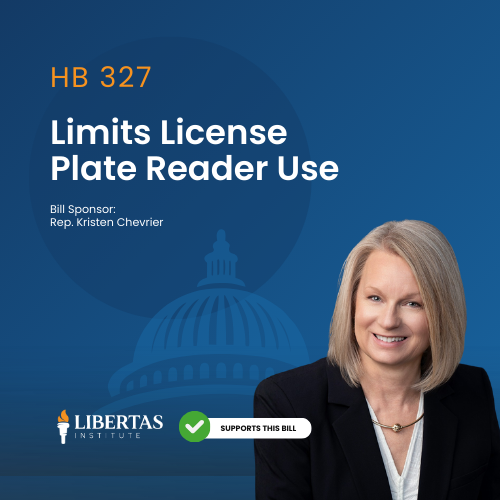To track the status of this bill, find it on our Legislation Tracker. Click here to contact the sponsor of the bill to share your thoughts, or click here to email your Senator and Representative about it.
Libertas Institute supports this bill
Driving under the influence is a serious offense, and is treated so under Utah code. But when the legislature writes these laws, it’s impossible for them to think of every unique scenario the law will apply to. Therefore, the penalties can be applied beyond the intent of the law. This is exactly what happened with Thomas, who is currently imprisoned at Oquirrh facility for a tragic accident, killing an 18 month old baby, and inuring the child’s brother and parents.
On the day of the accident, Thomas reached down to grab his phone, where he swerved and hit another family’s car. Although he was not impaired while driving on that fatal day, a standard drug test revealed trace amounts of THC and methamphetamine in his system. This left the judge no choice but to sentence him according to the language of Utah’s criminal statute with three consecutive 15-year sentences. If Thomas had increased amounts of both drugs in his system, making him impaired during the accident, he would have likely been sentenced with a 3rd-degree felony with three 5-year sentences rather than the statute he was charged under, which makes no sense.
Representative Cheryl Acton aims to fix this systemic flaw with House Bill 311. The bill would lower the criminal penalties from a second to a third-degree felony for those who have measurable amounts of schedule I or II drugs in their system at the time of an accident causing serious bodily injury. This would be more consistent with the penalties under the DUI statute. It would also lower the penalty from a third-degree felony to a class A misdemeanor when the measurable substance was marijuana or its equivalent. Lastly, for schedule III drugs or below it would lower the penalty from a class A to a class B misdemeanor.
This bill is not retroactive, so people like Thomas probably wouldn’t be let out early if the penalty changes. But for those in the future that are convicted under similar circumstances, changing the law would be tremendously helpful in ensuring a person who was not impaired during the time of a tragic accident, but had trace amounts of drugs in their system, are not penalized even harsher than those who were driving impaired.




